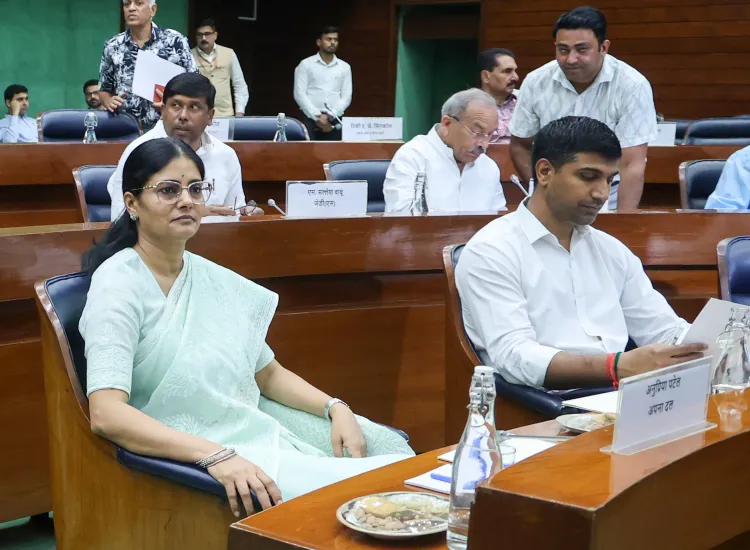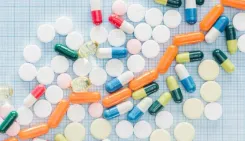How Did Drugs and Pharmaceuticals Exports Surge by 92% Over Six Financial Years?

Synopsis
Key Takeaways
- 92% growth in drug exports over six years.
- PLI scheme enhances manufacturing and investment.
- Cumulative sales expected to exceed Rs 2,94,000 crore.
- Research and innovation are prioritized in the Pharma sector.
- Bulk Drugs Parks are being developed in three states.
New Delhi, July 22 (NationPress) The export of drugs and pharmaceuticals has witnessed a remarkable increase of 92% in the past six fiscal years, soaring from Rs 1,28,028 crore in FY2018-19 to Rs 2,45,962 crore in FY2024-25, as reported to Parliament on Tuesday.
The Production-Linked Incentive (PLI) scheme for the pharmaceuticals sector is designed to bolster India's manufacturing capacity by attracting more investment and boosting production. This initiative also aims to enhance the range of high-value pharmaceutical products, as stated by Minister of State for Chemicals and Fertilisers, Anupriya Patel, in a written response in the Rajya Sabha.
Since its inception, the scheme has led to significant investments and production of eligible items. By March 2025, the committed investment of Rs 17,275 crore over the six-year duration was notably surpassed, with a cumulative investment of Rs 37,306 crore achieved by the scheme's third year. Additionally, cumulative sales of approved products reached Rs 2,66,528 crore, which includes exports amounting to Rs 1,70,807 crore.
With the target of cumulative sales reaching Rs 2,94,000 crore over the six-year scheme period, it is anticipated that this goal will be surpassed in the scheme’s fourth year.
The Promotion of Research and Innovation in Pharma MedTech Sector (PRIP) scheme has been introduced, featuring an allocation of Rs 5,000 crore, with the objective of shifting India’s Pharma MedTech sector from a cost-driven framework to one focused on innovation. This aims to bolster research and foster collaboration between industry and academia in key areas of drug discovery and development, as well as in medical devices.
As part of this initiative, seven Centres of Excellence (CoEs) have been established at each of the seven National Institutes of Pharmaceutical Education and Research (NIPERs), with total budgetary support of Rs 700 crore. These centres aim to develop research infrastructure and promote research and development in specified fields.
The CoEs focus on various areas, including anti-viral and anti-bacterial drug discovery, medical devices, bulk drugs, flow chemistry and continuous manufacturing, novel drug delivery systems, phytopharmaceuticals, and biological therapeutics. To date, they have approved 104 research projects and filed two patents, as noted by the minister.
The initiative also allocates Rs 4,250 crore to support industry and startups in collaboration with academia for research and innovation projects in priority sectors.
Under the Bulk Drugs Park initiative, three parks have been approved and are at different development stages in Andhra Pradesh, Gujarat, and Himachal Pradesh, facilitated by their respective state implementing agencies.
“The overall project cost exceeds Rs 6,300 crore, with Central assistance of Rs 1,000 crore allocated for the establishment of shared infrastructure facilities,” the minister concluded.









